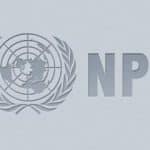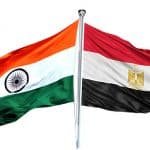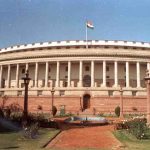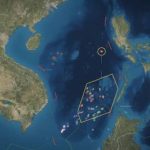What is NSG?
The NSG or the Nuclear Suppliers Group was founded in 1974 in response to a nuclear test conducted by India in the same year. A series of meetings in the early years, to frame the guidelines for export, were held in London. As a result, it was also called the “London Club”, “London Group” or the “London Suppliers Group”.
What is it’s purpose?
It’s aim is to limit the export and resultant proliferation of nuclear materials, technology and equipment (though transferred for peaceful purposes) that could potentially be used for making nuclear arms. Also, it makes sure that international trade and cooperation in the nuclear field is not unfairly hampered.
Who are the members of NSG?
The members of NSG are called Participating Governments (PG). The group started with 7 PGs-Canada, West Germany, France, Japan, the Soviet Union, the United Kingdom, and the United States. With the passage of time, the membership expanded and as of 2016 it has 48 Participating Governments. China became a PG in 2004. These countries are allowed to trade in nuclear equipment and technology.
Conditions for membership
There are certain conditions which need to be fulfilled by a country to be a member of the elite group:
It should have the ability to supply items, including those in transit. It should adhere and act according to the guidelines of the group.
It should also implement a legal domestic export control system which gives authorization to the commitment to act in accordance with the guidelines.
It should adhere to one or more of the NPT (Nuclear Non Proliferation Treaty), the treaties of Pelindaba, Rarotonga, Tlatelolco, Bangkok, Semipalatinsk, or an equivalent international nuclear non- proliferation agreement, and should full comply with the obligations of such agreement(s).
It should pledge it’s support for global efforts towards non-proliferation of weapons of mass destruction and of their delivery vehicles.
New members are admitted only by consensus of the existing PGs. If any member is against such an inclusion, then the country cannot gain the NSG membership.
Also read: Scope of Artificial Intelligence in India
Why India wants to be a member of NSG?
After the nuclear explosion in 1974, a US-led world embargo was imposed on civil nuclear trade with India. Three decades later, in 2008, India got a waiver from NSG which meant that India had the legal right, under the world nuclear regulatory regime, to trade for civilian nuclear fuel and technology. It’s limited Uranium reserves and nuclear power plants working at a lesser capacity made it desperate for importing advanced technology and fuel.
Ever since India got a special waiver in 2008 by NSG to conduct nuclear commerce, it has been vying for a full membership. This would give it a say at the high table where the rules of nuclear commerce are decided. India wants to become a nuclear supplier which would further help it expand it’s civil nuclear sector.
Which condition India still needs to fulfill?
India is not a signatory to the Nuclear Non Proliferation Treaty (NPT). This is because:
The NPT divides the world into Nuclear Weapons States and Non Nuclear Weapons States. According to the treaty, those countries which tested nuclear bombs before 1st January, 1967 (i.e. US, UK, China, Russia and France) are the nuclear weapon states which clearly excludes India.
India says that NPT is an entirely unfair treaty as the nuclear weapons states have no obligation to give up their weapons while the non nuclear weapon states are not allowed to have them.
India is committed to nuclear non proliferation, but does not want to endorse such a biased treaty.
The NPT stands on three pillars of non-proliferation, disarmament and peaceful use of nuclear energy. Although it calls for nuclear disarmament, no fixed timelines have been mentioned.
China has allegedly violated the treaty by proliferating knowledge to Pakistan.
India feels that it’s security is at risk until these five countries completely dismantle their nuclear arsenal.
So, India along with Israel and Pakistan refused to sign the treaty. But India has asserted that being a signatory to the NPT was not essential for joining the NSG as there has been a precedent in this regard, citing the case of France.
Which countries are supporting India?
For many years, India has been trying to reach out to many NSG member countries seeking support for it’s membership. US Secretary of State John Kerry in a statement said, ” India has shown strong support for the objectives of the NSG and the global nuclear non-proliferation regime and is a ‘like-minded’ state deserving of NSG admission”. Most nations of the group back India’s bid for it’s membership with Mexico and Switzerland being the latest additions. Since 2010, US has been actively supporting India’s efforts. It has repeatedly given exemptions to India and recently Obama officially endorsed India’s application to join the group.
Why is China opposed to India’s membership?
China, along with Turkey, New Zealand, Ireland, South Africa and Austria are against India gaining a membership of the NSG. China says that only signatories to the NPT should be admitted to the NSG. It argues that admissions in the group should be rule based and it wants the same exemption for Pakistan if any such exemption is extended to India. Until all 48 countries accept India’s entry, there is no hope of membership since the decision has to be arrived at by consensus.
What is the claim of Pakistan?
Pakistan,in May, submitted a formal application to join the group claiming that it had taken a series of steps that qualify it for being a member. It is against India’s membership of the NSG as it feels that giving India easy access to fissile material and technology for it’s civilian nuclear programme means it would have that much more material for it’s military nuclear programme. It fears that India gaining NSG membership will lead to a nuclear arms race. The Fissile Material Cutoff Treaty (FMCT) to cap the military nuclear stockpiles of all countries could have addressed many of Pakistan’s fears. But Islamabad refused to sign it.
Latest Developments
Foreign Secretary S. Jaishankar visited Beijing to remove the roadblocks and cited India’s growing demand for clean energy as a result of climate change as the basis for it’s membership bid. While India expressed optimism over convincing China to support India’s membership before a plenary* meeting to be held in Seoul on 24th June, China made it clear that India’s membership was not even on the agenda of the forthcoming meeting in Seoul.“We understand that non-NPT countries are very concerned about their entry into the NSG but since the NSG is still divided on this issue it is still not mature to talk about the entry issue at the annual conference in Seoul,” Chinese foreign ministry spokesperson observed.
A decision was taken at the Seoul meeting to appoint Argentine Ambassador Rafael Grossi as the “Facilitator of the Chairperson to having informal consultations with the Participating Governments in the Group”.
This is a significant development as Mr. Grossi, who is the outgoing chairperson of the NSG, was keenly interested in bringing India’s bid to the NSG meeting this year.
NSG session in Seoul ended with a “path forward” for India’s acceptance as a member.
* (of a meeting) to be attended by all participants at a conference or assembly, who otherwise meet in smaller groups.









